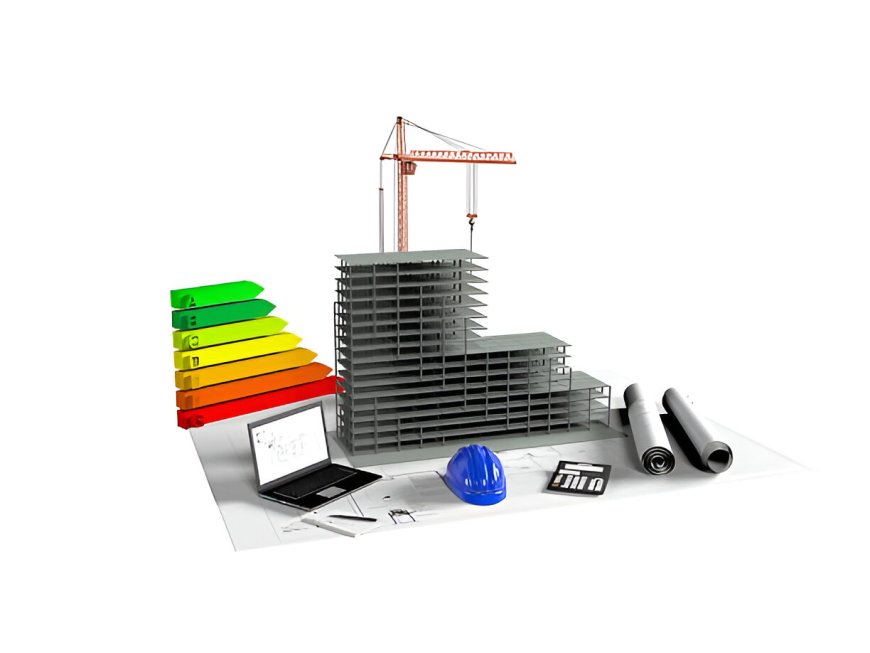Unlocking project success: The importance of detailed construction estimates

In the tangled field of construction, the secret to executing a project successfully usually lies in the pre-planning stage. Of the multitude of variables that affect the success of a construction project, among the most important is the formulation of clear construction estimates. These estimates form the basis upon which the construction project's entire structure is based and help in providing a solid plan regarding cost, timeline resources, and possible risks. If there aren't precise estimations, construction projects may easily drift off track, which can lead to overruns in delays and discontented parties.
What Are Construction Estimates?
Construction Estimating Services provide detailed forecasts of the estimated cost of construction projects. They take into consideration everything from the cost of labor and materials as well as overhead and equipment costs. The aim is to bring an accurate estimate of the resources needed to finish the project so that stakeholders can make informed decision-making and to allocate needed money.
A construction estimate is a complex process that involves a variety of elements, like construction conditions, design specifications, regulations, and the market's circumstances. An expert estimator will examine each one of these variables to create an accurate estimation that accurately reflects the value of the construction project.

Why Are Detailed Construction Estimates Important?
Budget Control and Financial Planning
The primary function of a construction estimation can be used to ensure that the construction project is within the budget. A thorough analysis of the cost estimates allows participants and project managers to plan their resources energetically and prevent surprises in the building stage. A properly planned estimate will prevent projects from overstepping their budget, thus safeguarding the viability and profitability of the venture.
Construction estimates can also benefit to secure financing for the construction. If it's an individual development or an infrastructure project for the public, the stakeholders must have a thorough grasp of the financial demands before committing funds. Specific estimations prepare confidence for investors, financiers, and clients required to push on the project.
Time Management and Scheduling
Accurate construction takeoff services aren't just about cost management but also about managing time. The time factor is an important aspect when it comes to construction projects, as delays could cause costly problems. Comprehensive estimates contain an analysis of the labor cost and timeframes, which allows the project manager to design accurate plans and warrant that the resources are in place at any time.
When estimates for construction are precise, the chance of delay is reduced. The possibility of scheduling errors is eliminated, and bottlenecks that could arise in the supply chain are discovered and dealt with ahead of time. An alignment of the timeline of the project with the budget estimate will warrant that time and cost can be controlled, which reduces the risk of costly delays.
Risk mitigation
Every construction project has inherent risks. These include variations in the cost of materials or labor shortages as well as weather delays, as well as unforeseen circumstances on the site. Precise construction estimates can play an important role in the mitigation of risk by identifying possible issues early during the construction process. Estimators can identify these dangers and include contingency plans to take into account unexpected costs.
Integrating risk analysis into construction estimates can also prevent the creep of scope that occurs when the project's requirements grow beyond the initial plan. With a clear definition of the project's scope of work and costs at the start, all stakeholders can stay clear of costly changes and keep control of the project's progress.
Enhanced Communication and Collaboration
An accurate construction estimate is used as an essential instrument for communication between all parties, such as project owners as well as architects, contractors, and subcontractors. This ensures that all participants know exactly the project's logistics and financial demands, which promotes openness and cooperation.
Construction projects are a mix of several fields of study, and any miscommunication could lead to costly errors or the need to rework. Specific estimations warrant that all parties are in the same boat to avoid confusion and also encourage collaboration. If all parties have access to precise financial details, they will be able to cooperate more efficaciously to obtain the objectives of the project.

Components of a detailed construction estimate
A complete construction estimate generally contains several important elements:
Labor Costs:
These include all benefits and wages paid to everyone who is part of the project, including laborers, experienced tradespeople, and management staff. Costs for labor may vary greatly with the area of work as well as the labor supply and the union's requirements.
Material Costs:
The cost of materials accounts for an important amount of any construction. Estimates should contain the price of all necessary items, from structural components such as steel and concrete as well as finishing components such as fixtures and paint.
Equipment costs:
Construction projects typically require special equipment, including bulldozers, crane excavators, and cranes. Estimates must include either the purchase or rental of the equipment in addition to operating and maintenance costs.
Subcontractor Costs:
A lot of construction projects require hiring subcontractors to complete specific tasks for plumbing, electrical work, or HVAC installations. It is important to include expenses associated with the hiring and management of these subcontractors.
Cost of overhead and profits:
Construction firms must take into account overhead costs like permits, insurance, office expenses, and profit margins. These expenses warrant that the project will remain economically viable for the contractor.
Contingency:
It is an insurance policy for any unexpected costs that could arise in the course of the process. It is a cushion of money for unforeseen events that could cause delays to the project.

The Role of Technology in Construction Estimating
Recent technological advancements have changed how construction estimates can be created. Estimating software makes it simpler for contractors and project managers to create precise estimates in a short time. The tools provide immediate updates, the integration of other systems for managing projects, as well as the capability to modify estimates when conditions in the project change.
Building Information Modeling (BIM) is another method of technology that has changed the way construction estimates are calculated. BIM allows project teams to build 3D plans of the project that can be utilized to create precise labor and material estimations. The level of detail increases estimation accuracy and minimizes the risk of making mistakes.
Conclusion
In the construction industry, it is dependent on your capacity to manage and plan resources energetically. Precise construction estimates are vital tools to favor the logistical and financial infrastructure needed to assure the success of projects. In controlling expenses as well as managing time, reducing risks, and encouraging cooperation, they let you know the possibilities for efficient project implementation and warrant that all stakeholders achieve the desired results. The importance of investing in precise and thorough estimates of the construction process is not only a perfect procedure; it's the prerequisite to the success of your project.
What's Your Reaction?
 Like
2
Like
2
 Dislike
0
Dislike
0
 Love
0
Love
0
 Funny
0
Funny
0
 Angry
0
Angry
0
 Sad
0
Sad
0
 Wow
0
Wow
0











































